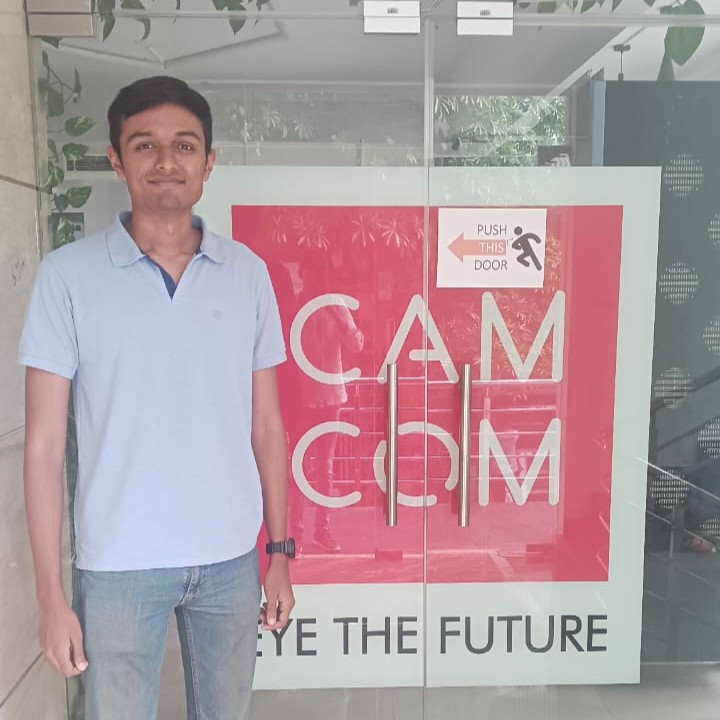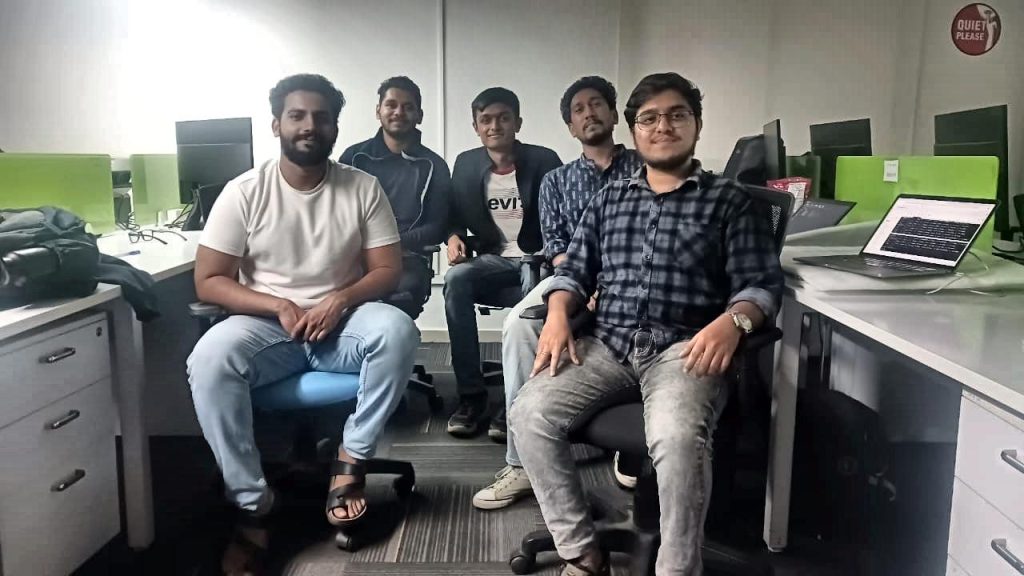I had the opportunity to intern at CamCom Technologies Pvt. Ltd., Bangalore, a company specializing in advanced AI solutions for damage assessment in Insurance, Manufacturing, and Public Safety, among other verticals.
I was fortunate to contribute to a project for a major client, developing and testing critical software components in their Damage Detection Pipeline. I also had the wonderful opportunity to learn from and collaborate with brilliant teams and get a close-up view of how cutting-edge technology comes to life in the industry.
I’m excited to share my experiences, complete with tips on how I navigated my journey as a first-time intern, and how you too can make the most out of your first professional experience!

🧠 What I Worked On
During the three-month internship period (February 2025 – April 2025), I began learning about their product at the grassroot level – testing and calibrating cameras used to capture images of automotive parts on the factory line, and over the course of a couple of weeks, I worked my way up to developing and integrating an API that refines the damage detections made by their Deep Learning Model before they are presented to the client. I also built a 2D-to-3D damage projection system that enables the client to view the defects in an interactive, lightweight 3D setup.
Additionally, I worked on various other tasks to automate the workflow of Data Annotators in the company, thereby significantly increasing their throughput for generating data to train Damage Detection Models.
Each task was tied to a bigger goal, which gave me a strong sense of purpose and helped me understand the real-world application of what we learn in classrooms. I wasn’t just solving problems—I was solving them for someone. The experience was both hands-on and intellectually rewarding.
🤝 Working with the Team

One of the biggest takeaways from my internship was learning how to work with a team, not just in a team. Here are a few things that helped me communicate better:
- Ask clear questions. If you’re stuck, formulate your doubts precisely. Vague questions lead to vague answers.
- Document progress. Maintain notes or updates to share what you’re working on—this helps others help you better.
- Respect time. If you can’t make it to a meeting, or if you’re going to be late, inform the concerned stakeholders, so they are prepared to make other arrangements.
- Observe before jumping in. Initially, it’s better to listen more, understand workflows, and then suggest ideas or improvements.
📅 Planning and Execution
Good planning is half the job done. Here’s how I approached tasks:
- Break down objectives. Divide large goals into actionable steps. It’s easier to track and less overwhelming.
- Sync with mentors regularly. Feedback loops are crucial. Don’t wait until the end to showcase your work.
- Set micro-deadlines. They keep you on track and give a sense of progress.
✅ Do’s
- Take initiative. Volunteer for tasks or ask how you can contribute beyond your assignment.
- Be curious. Ask why something is done a certain way. It’ll deepen your understanding.
- Stay humble. You’re there to learn, not prove.
❌ Don’ts
- Don’t pretend to know. It’s okay to admit you’re unfamiliar with something. In fact, it’s appreciated.
- Don’t isolate yourself. Even if you’re remote, keep communication channels active.
- Don’t ignore documentation. Reading through existing docs or code comments can save hours of confusion.
🎯 Final Thoughts
Internships are more than resume points—they’re crash courses in professional life. My time at CamCom Technologies helped me understand not just how products are built, but how people work together to build them. It taught me the importance of clarity, structure, and continuous learning. To every student about to begin their internship journey: go in with an open mind, a positive attitude, and a strong intent to learn and grow. The experience will shape you in ways that textbooks simply can’t.

